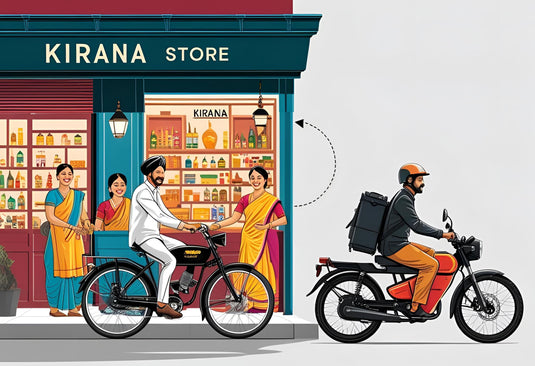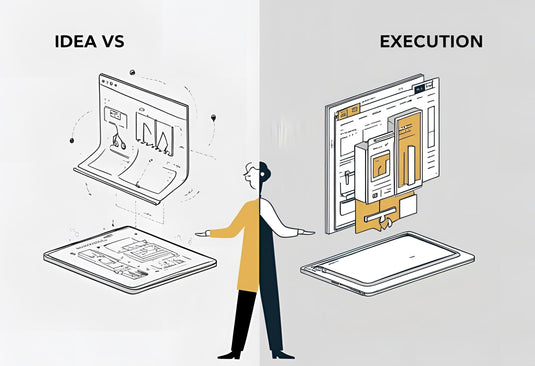Before 2001, almost every Indian household had one go-to place for food essentials —
The nearby kirana store.
They knew your family.
They gave you credit.
Sometimes, they even delivered before Swiggy thought of it.
But then, something big happened.
🚪 The Entry of Corporate Giants
In 2001, Big Bazaar opened its doors.
In 2002, DMart quietly entered the scene.
For the first time, Indian families were walking into air-conditioned stores to buy wheat, rice, pulses, and oil.
This was no longer just about groceries.
It was the beginning of organized retail entering the kitchen.
📦 Then Came the Digital Storm
Just as we got used to malls and shopping bags, the second wave hit:
Flipkart
Amazon
Reliance JioMart
Tata Neu
Zepto
Blinkit
Grofers (now Blinkit)
Today, you don’t even step out.
Groceries come faster than a pizza — 10 minutes or less.
The grain that once came from your nukkad ki dukaan now comes from a dark store you’ll never see.
🤔 What Changed?
Think about it:
Why are India’s biggest corporates racing to sell wheat and rice?
Why are they spending crores on logistics, warehousing, and delivery tech — just to sell the same atta, dal, and chawal?
Why is every tech unicorn obsessed with groceries — the most basic of all categories?
The answer is simple:
📊 Data. Volume. Daily habit. Dependency. Loyalty.
Grocery is not just a product — it's a hook.
And whoever controls your grocery habit... controls your wallet, your trust, and eventually, your lifestyle.
🧓 And What About the Kirana Stores?
Some survived. Many didn’t.
Some partnered with the giants. Others were pushed out.
Local grocers still serve millions — but the game is no longer fair.
They can’t offer 10-minute delivery
They don’t have deep pockets
They can’t run massive discounts
And they definitely don’t have access to customer data and AI-driven pricing
📉 From Community to Corporation
The shift from kirana to corporate wasn’t just about convenience.
It was a shift from relationships to algorithms.
From “bhaiya ek kilo chawal dena” to “Add to Cart”.
🔮 The Big Question
Are we building a future where everything is convenient but controlled?
In the rush for speed, scale, and startup success —
Have we stopped asking:
Who really wins?
Who is being quietly erased?
And who controls the essentials of our life?
💡 Final Thought
Food is personal.
It connects generations. It builds communities. It defines culture.
But now, it's being packed, shipped, and delivered —
By companies who never ask your name, never trust your face, and never wait for your next visit.
Welcome to the new world:
Where your dal is digital,
Your atta is algorithm-driven,
And your neighborhood kirana store is just history on Google Maps.


